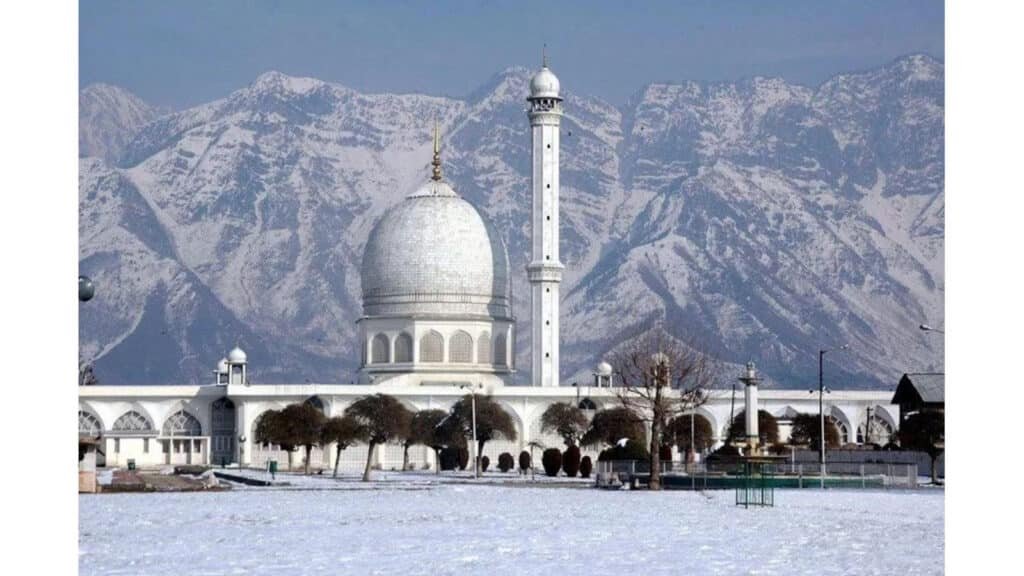Eid Milad-un-Nabi sparks fresh tension in Kashmir. Chief Minister Omar Abdullah criticizes Lieutenant Governor Manoj Sinha. They clash over holiday date changes. This Eid Milad-un-Nabi Kashmir controversy highlights governance issues. Many locals feel frustrated. The focus remains on Eid Milad-un-Nabi traditions.

Background of the Conflict
Eid Milad-un-Nabi celebrates Prophet Muhammad’s birth. Muslims observe it worldwide. In Jammu and Kashmir, moon sighting determines dates. However, this year brings disputes. The government calendar notes holidays subject to moon appearance. Yet, officials ignore requests to shift.
Omar Abdullah leads the charge. He calls the decision deliberate. It hurts public sentiments, he says. Moreover, Education Minister Sakina Itoo joins in. She labels it unjust. “This plays with people’s emotions,” she tweets.
Transitioning to details, the elected government pushes for change. They want September 6 as the holiday. But Lieutenant Governor Manoj Sinha refuses. Consequently, frustration grows among residents.
Moon Sighting and Holiday Rules
Moon sighting holds key importance in Islam. Holidays like Eid adjust accordingly. In Kashmir, this practice faces challenges. The administration prints calendars with clear notes. Still, they stick to original dates.
Omar Abdullah shares calendar screenshots online. He points out the “subject to moon” clause. Therefore, many expect flexibility. Instead, rigidity prevails. This sparks widespread criticism.
Furthermore, locals recall past incidents. Earlier Eid holidays also stayed unchanged. Now, Eid Milad-un-Nabi Kashmir issue repeats. People demand respect for traditions.
Political Reactions Heat Up
Politicians voice strong opinions. Omar Abdullah accuses the unelected setup. He terms it inconsiderate. “The deliberate choice hurts sentiments,” he states.
Sakina Itoo echoes similar views. She questions the clause’s meaning. If not followed, what purpose does it serve? Additionally, other leaders chime in. They urge action from authorities.
On the other side, some defend the administration. They cite procedural reasons. Yet, the divide widens. Transition words like however show contrasting sides. However, unity seems distant.
Shrine Incident Adds Fuel
At Hazratbal shrine, unrest erupts. Worshippers damage a plaque. It features the Ashoka Emblem. They object to it inside the mosque. Islam forbids idol worship, they argue.
National Conference members react. One MLA writes about Tawheed. “Sacred spaces must reflect purity,” he says. Meanwhile, Waqf Board chairperson blames vandals. She calls for strict action.
Darakshan Andrabi demands Public Safety Act use. “These goons damaged our emblem,” she declares. The shrine recently underwent renovation. Now, this Eid Milad-un-Nabi Kashmir event tarnishes it.
Protests follow the damage. Women and men use stones. Videos spread online. Authorities promise investigation. Still, tensions simmer.
Greetings Amid Controversy
Leaders extend wishes despite rows. Prime Minister Narendra Modi greets everyone. “May compassion guide us,” he posts. Lieutenant Governor Manoj Sinha follows suit. He highlights Prophet’s teachings.
Omar Abdullah also sends messages. “Let us promote brotherhood,” he urges. The Chief Minister prays for peace. Furthermore, IGP Kashmir adds greetings. He hopes for tranquility.
These words aim to soothe. Yet, underlying issues persist. Transitioning to broader impacts, festivals should unite. Instead, they divide here.
Historical Context in Kashmir
Kashmir boasts rich Islamic heritage. Eid Milad-un-Nabi draws huge crowds. Processions fill streets. Devotees visit shrines. Hazratbal holds special significance. It houses Prophet’s relic.
Past years saw smooth celebrations. But post-2019 changes alter dynamics. Article 370 abrogation shifts powers. Now, Lieutenant Governor holds sway. Elected leaders feel sidelined.
Omar Abdullah often clashes with Sinha. Recent events highlight this. For instance, police stop tributes earlier. Abdullah scales walls in defiance. Such acts show deep frustrations.
Public Sentiments and Demands
Residents express dismay. Many feel traditions get ignored. “We deserve respect,” one local says. Social media buzzes with opinions. Hashtags trend rapidly.
Moreover, religious scholars weigh in. They stress moon sighting’s role. Ignoring it disrespects faith, they claim. Therefore, calls for dialogue grow.
Communities organize meetings. They plan peaceful protests. Transition words like additionally help connect ideas. Additionally, youth groups join. They demand holiday shifts.
Governance Challenges Exposed
This Eid Milad-un-Nabi Kashmir row reveals gaps. Elected versus appointed powers collide. Omar Abdullah pushes for more control. He argues for people’s voice.
Lieutenant Governor’s office stays silent. No official response yet. However, insiders hint at protocols. Still, public pressure mounts.
Analysts see political motives. Some link it to upcoming events. Yet, focus remains on faith. Festivals should not become battlegrounds.
Path Forward for Harmony
Stakeholders must talk. Dialogue can resolve issues. Omar Abdullah invites discussions. He seeks mutual respect.
Furthermore, religious bodies offer mediation. They emphasize unity. “Prophet taught compassion,” one leader notes.
Moving ahead, policies need clarity. Calendars should adapt flexibly. This prevents future rows. Transitioning to positives, Kashmir’s spirit endures. People celebrate despite odds.
Impact on Daily Life
Schools and offices close on set dates. But mismatch confuses many. Students miss classes wrongly. Workers face dilemmas.
Businesses suffer too. Markets prepare for wrong days. Therefore, economic ripples occur. Locals adapt, but resentment builds.
In rural areas, effects deepen. Transport halts unexpectedly. Families delay gatherings. Such disruptions fuel anger.
Cultural Significance of Eid Milad-un-Nabi
Eid Milad-un-Nabi inspires reflection. People share stories of Prophet. Mosques host recitations. Streets light up.
In Kashmir, unique customs thrive. Sufi influences blend in. Songs and prayers echo. Despite controversy, devotion shines.
Scholars remind of core values. Equality and peace prevail. “Follow the path,” they advise. This Eid Milad-un-Nabi Kashmir moment tests resilience.
Voices from the Ground
A devotee at Hazratbal shares thoughts. “We come for blessings,” she says. Vandalism saddens her. Another man calls for calm. “Don’t mix politics with faith,” he urges.
Youth express via social media. They demand justice. “Shift the holiday now,” posts flood in. Transition words like moreover amplify calls. Moreover, elders recall peaceful pasts.
Broader Implications for India
This issue resonates beyond Kashmir. Other states watch closely. Moon-based holidays vary regionally. Uniformity debates arise.
National leaders monitor. Modi’s greeting sets tone. Yet, local autonomy questions linger. Federalism gets tested here.
Additionally, media coverage spreads awareness. Reports highlight sensitivities. Education on traditions follows.
Wrapping Up the Eid Milad-un-Nabi Kashmir Saga
Controversy surrounds Eid Milad-un-Nabi in Kashmir. Omar Abdullah and Manoj Sinha stand at odds. Holiday date remains unchanged. Shrine incident adds layers. Yet, greetings flow from all.
People hope for resolution. Faith unites despite divides. Let compassion lead, as Prophet taught. This Eid Milad-un-Nabi Kashmir event teaches lessons. Harmony must prevail.





